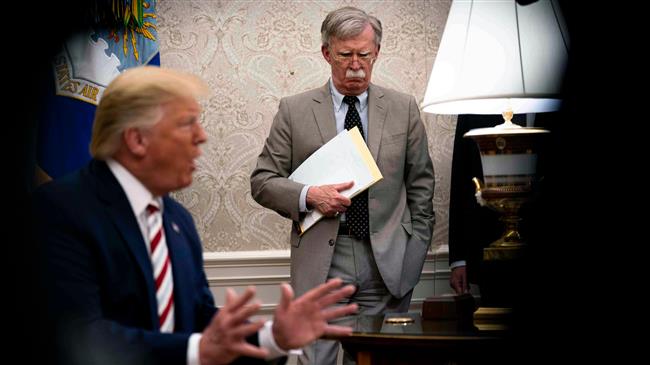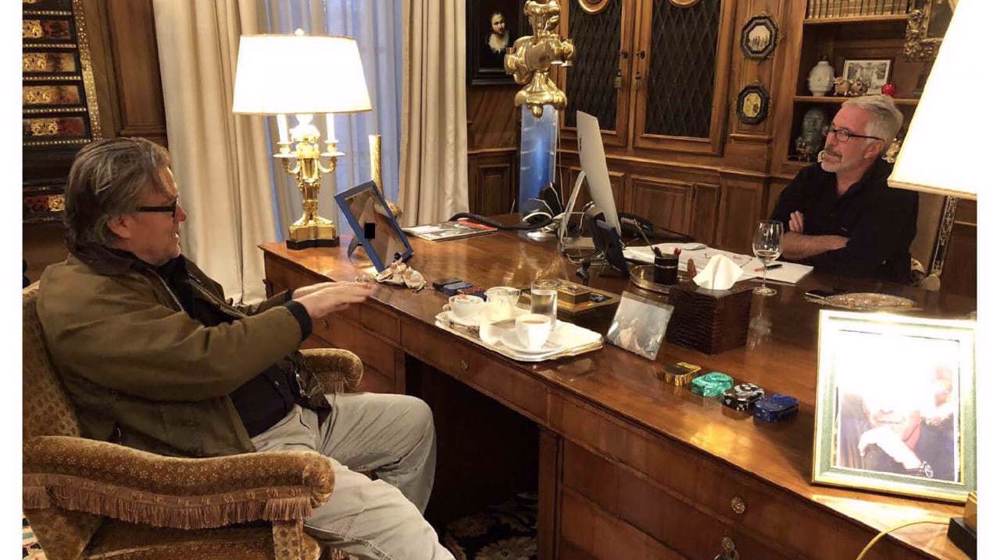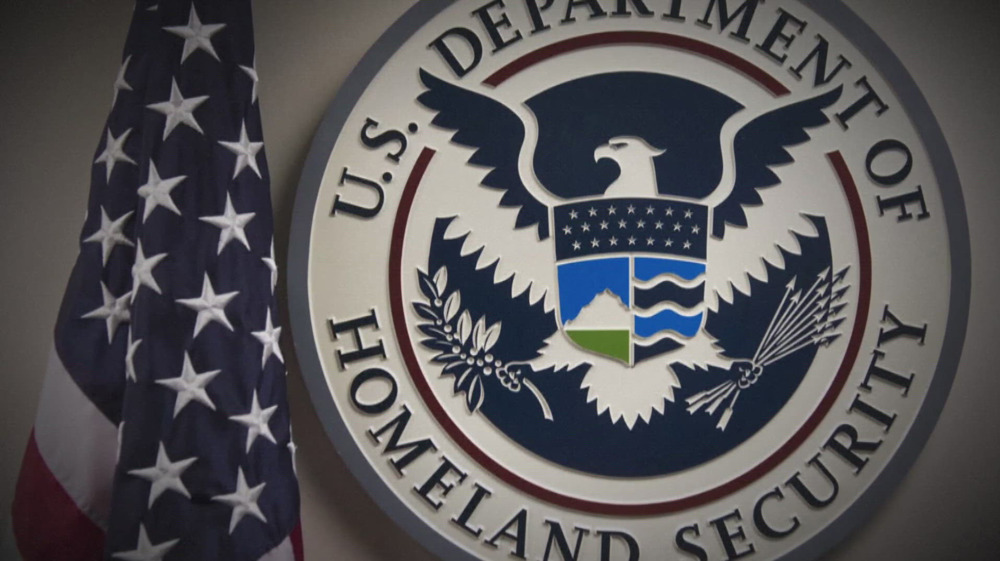Iran hawk Bolton says US snapback 'not worth the risk'
Iran's Foreign Minister Mohammad Javad Zarif has reiterated that US recourse to a dispute mechanism of the 2015 nuclear deal is baseless after Washington's withdrawal from the agreement, citing the statements of one of Washington's own former top officials.
“US recourse to Dispute Resolution Mechanism in 2231 has NO LEG TO STAND ON,” Zarif said on Twitter on Sunday, citing assertions by former US national security advisor John Bolton who has admitted that Washington's contention holds no water.
.@AmbJohnBolton has repeated today what he said on May 8, 2018, while National Security Advisor in the Trump administration.
— Javad Zarif (@JZarif) August 16, 2020
At least he is consistent—a trait notably absent in this US administration.
US recourse to Dispute Resolution Mechanism in 2231 has NO LEG TO STAND ON. pic.twitter.com/txNBhyOkv4
US President Donald Trump pledged Saturday to trigger a return of all sanctions on Iran using a provision, known as snapback, in UN Security Council Resolution 2231, a day after the UN Security Council overwhelmingly rejected an American resolution to extend an arms embargo on Iran.
"Snapback” was envisioned in the event Iran was proven to be in violation of the 2015 nuclear accord. Trump pulled out of the agreement, known as the JCPOA, in 2018. But the US circulated a six-page memo Thursday from State Department lawyers, claiming that the United States remained part of the 2015 Security Council resolution that endorsed the deal and still had the right to use the snapback provision.
Zarif also posted two photos in his Sunday tweet showing Bolton’s remarks that the US has no right to use the snapback technique.
One of the photos showed Bolton’s remarks during a press briefing back in 2018 in which he said the US was not using the provisions of Resolution 2231, “because we’re out of the [nuclear] deal”.
The other photo was of an article by Bolton titled "Iran ‘Snapback’ Isn’t Worth the Risk" published by the Wall Street Journal on Sunday in which he referred to paragraph 11 of Security Council Resolution 2231 that provides that a “participant state” in the nuclear deal, asserting “significant non-performance of commitments” thereunder, can force a Security Council vote on snapback within 30 days.
In the article, Bolton backed the arguments made by the agreement’s supporters who say Washington, having withdrawn from the deal, has no standing to invoke its provisions.
“They’re right. It’s too cute by half to say we’re in the nuclear deal for purposes we want but not for those we don’t. That alone is sufficient reason not to trigger the snapback process,” the war-mongering neocon said.
Bolton “has repeated today what he said on May 8, 2018, while National Security Advisor in the Trump administration,” Zarif said in his Sunday’s tweet.
“At least he is consistent—a trait notably absent in this US administration,” he added.
‘Is Pompeo really this dumb?
US State Secretary Mike Pompeo’s recent remarks in which he described snapback sanctions the US wants to impose on Iran despite opposition from other UNSC members as “MULTILATERAL” have generated widespread mockery on social media.
“If at any time the United States believes Iran has failed to meet its commitments, no other state can block our ability to snap back those multilateral sanctions,” Pompeo said in a statement, posted by his official Twitter account on Sunday evening.
“Of course other states can block America’s ability to impose multilateral sanctions. The US can impose sanctions by itself, but can’t force others to do it,” Nicholas Grossman, Teaching Assistant Professor, Department of Political Science, University of Illinois, tweeted.
“That’s what 'multilateral' means. Is our SecState really this dumb?” Grossman asked.
Coupling the word “multilateral” with the US intent to ignore any objections other parties to the nuclear agreement - Russia, China, Britain, France, and Germany- may have, prompted Daniel Larison, senior editor at the American Conservative, to suggest that the top US diplomat might be having a hard time with understanding the meaning of the word “multilateral.”
Dan Murphy, former Middle East and South Asia correspondent for the Christian Science Monitor, also called it “one of the most diplomatically illiterate sentences of all time.”
“I guess the end game here is [to] alienate the rest of the world even further to feed his persecution complex?” Murphy wrote.
VIDEO | Press TV's news headlines
Child detentions surge under Trump deportation campaign: Report
VIDEO | Trump's Gaza 'peace plan' dismissed as 'one-sided and unworkable'
Sheikh Qassem: Hezbollah foiled objectives of enemy’s aggression
VIDEO | Transatlantic rift at Munich Security Conference
‘Textbook definition of terrorism’: Tehran denounces Pelosi’s call on US to exact ‘pain’ on Iranians
VIDEO | 39th AU summit opens in Addis Ababa with focus on water security, peace, and development
VIDEO | Iran: The stronghold Washington lost










 This makes it easy to access the Press TV website
This makes it easy to access the Press TV website